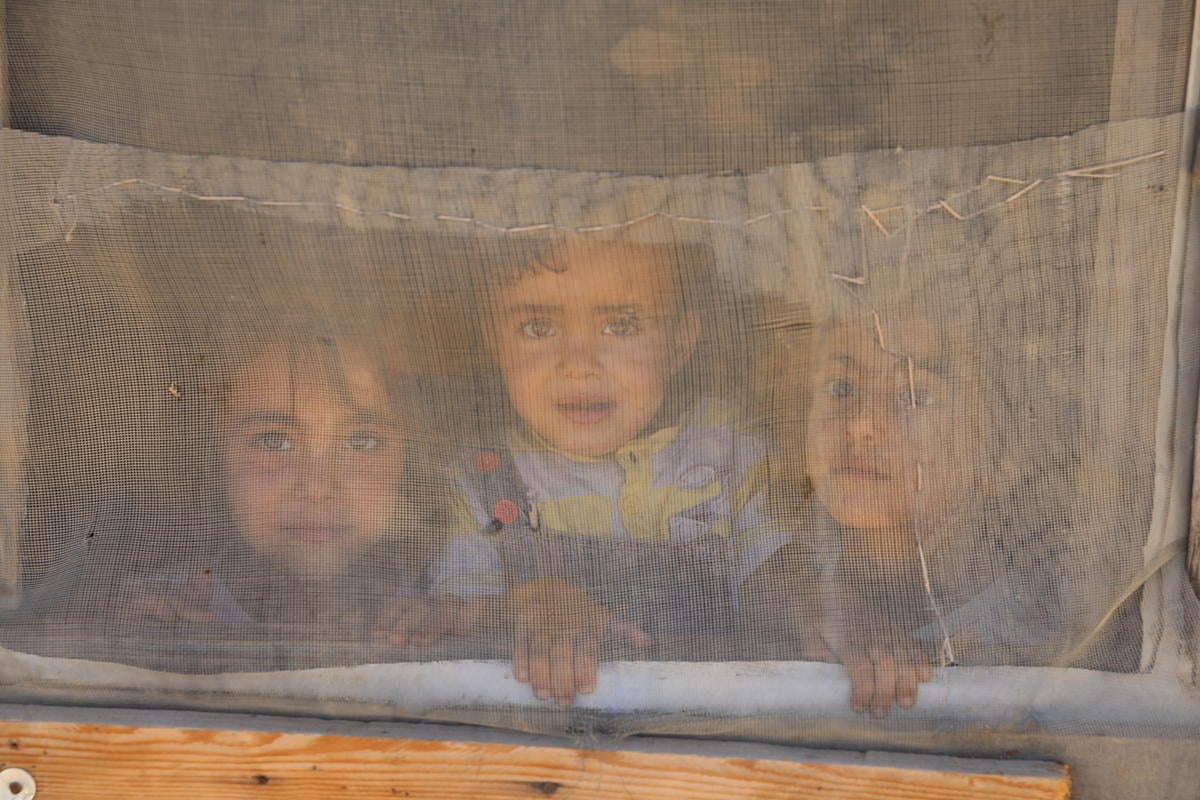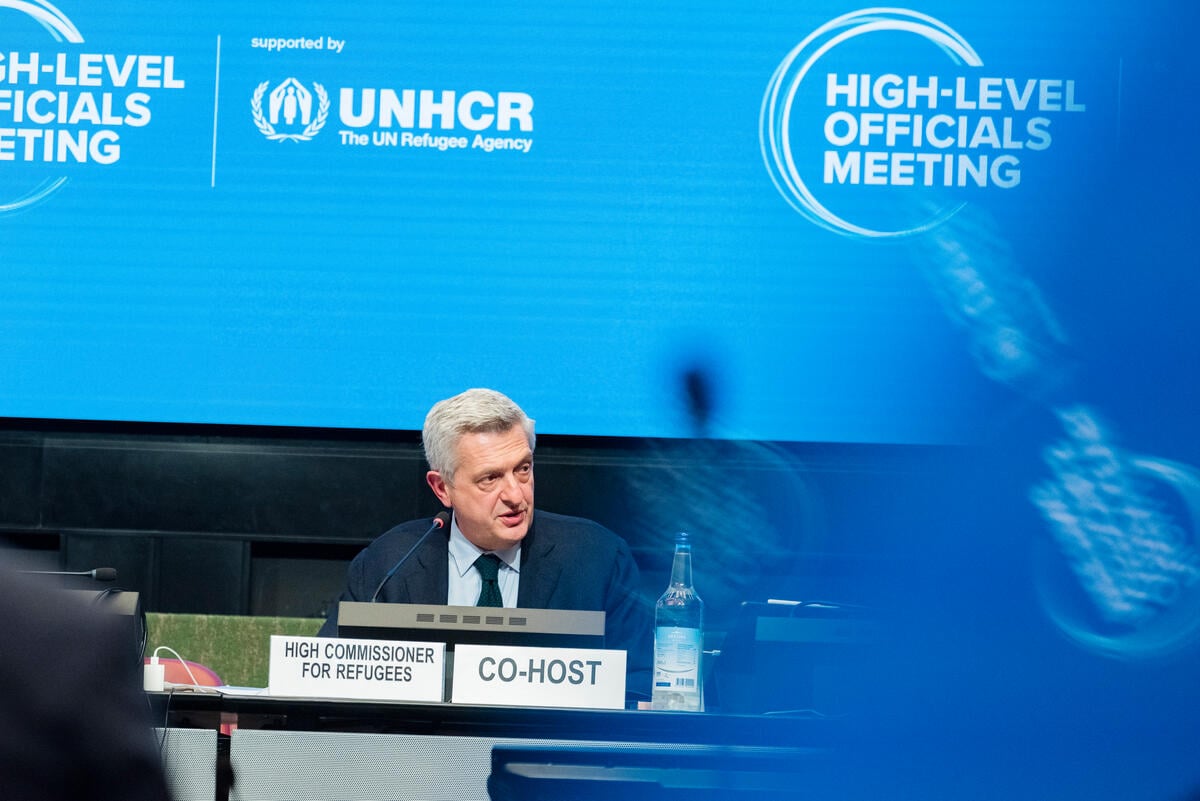From Jordan's harsh Ruweished desert camp to a new life in Ottawa
From Jordan's harsh Ruweished desert camp to a new life in Ottawa

OTTAWA, Canada, January 11 (UNHCR) - Labiba Eisa and her family have moved from one extreme to another. After more than three years of uncertainty and suffering in a harsh desert camp in Jordan, they were resettled early last month in the wintry climes of Canada, where the utilities all work, the shops are full of goods, people live in harmony, and war is something you read about in the foreign pages of the local newspaper.
"My first impression when we arrived at Toronto airport was that we had entered a different world. People who we didn't even know were smiling at us, and their kindness left me speechless," the university-educated mother of three recalled.
Eisa, her husband and children were transferred to their new home in the national capital, Ottawa, soon after arriving in Canada. They are part of a group of 63 Palestinian refugees that the Canadian government has agreed to resettle from the isolated Ruweished camp - most have arrived in the country.
It was the end of a long journey that began barely a month after the U.S.-led invasion that toppled the regime of President Saddam Hussein in March 2003. Although Eisa and her family were Palestinian, they had been born and bred in Baghdad - Iraq was home.
But the Palestinians were associated with Saddam Hussein and soon became targets of discrimination and violence. The family were forced out of their rented apartment and decided to leave for Jordan when their youngest daughter's primary school was attacked with mortar fire. "It was obvious that things would only get worse for us," Eisa explained.
They ended up in Ruweished - a bleak scorpion-infested tented camp frequently buffeted by violent winds and sandstorms. They had to endure savage heat in the summer and extreme cold at night. "Although we were safe, we felt like we were in a prison camp with guards at the gates," said Eisa.
The world seemed to have forgotten the family and their fellow Palestinians, several of whom decided to return and take their chances in Iraq rather than waste away in Ruweished. But UNHCR was onto their case, trying to find a long-term solution for the 150 Palestinians who remained in Ruweished.
Canada answered the call, offering to resettle 63 of the group. "We very much appreciate that UNHCR put a lot of effort into helping us come to Canada," Eisa said, while adding that she felt sad for those left behind in Jordan with whom she had forged strong emotional bonds.
"I called my friends on my first day in Ottawa. No one knows what the future holds for them, but I can never forget them," she said. Eisa also misses and fears for the safety of her parents and four siblings stuck in Baghdad.
Her priority is to enrol her three children in school. "They have not been to a normal school in four years," she said, referring to daughters Hanin, 17, and Ayat, 9, and 16-year-old son, Ahmad. Their only education in the camp consisted of some English tutorials.
Once that task is over, she and her husband, Nayef Amoura, would like to find work. "I am optimistic because we are in Canada, where everyone is helpful and no one is criticising or staring at us," she said, pointing to her Islamic hijab headscarf. Eisa worked as a high school teacher in Baghdad, while her husband was an engineer.
For the first time in years, Eisa feels optimism and hope for the future. "When I was in the camp, Canada had the reputation of being the best country for refugees," she said, adding: "I am very thankful to see that it has lived up to its reputation."
By Nanda na Champassak in Ottawa, Canada








